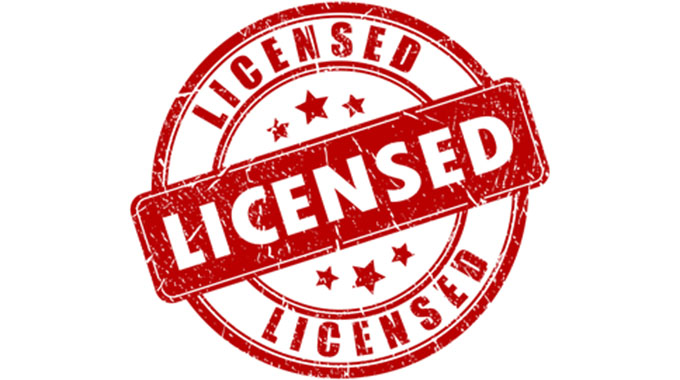Editorial Comment: All mining needs to be legal, licenced

THE welcome given by representatives of the small-scale mining sector to the new total ban on exports of mineral ores or inadequately processed minerals is welcome and opens the door to better regularisation of the mining sector.
Both Henrietta Rushwaya of the Zimbabwe Miners Federation and Chiedza Chipangura of Women Empowerment in Mining were keen in their support of the ore export ban to see opportunities opened for small-scale and artisanal miners to be able to access processing facilities easily in their areas and be able to see their ores legally pass to those who would process.
Ms Rushwaya spoke about the need to attract investment into this processing business and put it on a secure footing.
The two are correct, if we are to have artisanal and small-scale mining we need to sort out the mechanisms.
We have seen the mess that can exist in artisanal gold mining and panning, where unlicenced miners just move in and dig, sometimes digging in areas assigned to other miners, often in the more formal sectors, sometimes endangering and damaging buildings and roads, sometimes being involved in what looks close to gang battles, and sometimes threatening those who try and resist.
We also saw more than a decade ago a serious free for all in the Chiadzwa area of Marange when the first alluvial diamonds were discovered, the complications that arose and the special efforts needed to bring order in the chaotic conditions that arose.
Admittedly diamonds were a special case, since quite a lot of wealth can be put in a pocket, and a lot of the existing rules and laws were extremely difficult to apply.
But we have also seen something a lot more legal and professional, even with artisanal miners, in chrome mining, where there was orderly mining done safely by self-employed miners using little more than a pick and shovel with a wheelbarrow, and that can help provide an example of how this sort of operation can be done.
They were selling the ore they dug, but when the ban on exports of chrome ore was announced and enforced, the buyers simply had to deliver to a smelter.
Right now the perennial artisanal gold mining, which has been going on for close to 1 000 years across Zimbabwe, with just a modest gap in colonial times when only white small-scale miners were allowed, is being wrestled into control and conformity with the mining laws.
A proper sales network has been established, where the tiny quantities most miners collect, can be legally sold.
We still need to stop people moving into land where mining licences have been issued to others, and that is still a problem, but at least the artisanal miners are no longer being cheated by unscrupulous middlemen trying to gather gold for those who wish to smuggle it out of the country.
Now we have a new area of artisanal mining, for lithium ore at a deposit discovered in Mutoko as well as the oldest known deposit in Bikita.
People, equipped with nothing more than a pick, shovel and wheelbarrow, have taken to tackling surface outcrops and buyers have emerged from the woodwork with trucks, offering US$12 to US$17 a wheelbarrow load, that is around US$100 a tonne.
This for a peasant farmer can be very good money and not surprisingly quite a lot of people in the two areas are going out to dig.
Their buyers do not advertise and try and keep a low profile, so we do not know who they are, who they work for, and what happens to the lithium ores they are buying.
There is speculation that one of the reasons for the original ban on exports of lithium ores, now overtaken by the general ban on exports of ores of all base-metals, and the early bans of precious metal ores, was to nip this illegal activity in the bud promptly.
Trucks full of ore just disappearing, perhaps over a border, should not be happening.
In any case the artisanal lithium miners appear to be cheated, getting less than a quarter of what their ore is actually worth. The whole process appears to be exploitative, potentially illegal, and likely to lead to further illegality and crime.
Few would object if the new wheelbarrow-equipped artisanal lithium miners were mining in their own area, were not poaching on someone else’s mining rights and were not converting their area into something looking like the surface of the moon.
But we would like to see legal mining rights established, some supervision and sorting out of any potential conflict and a general following of the rules and regulations.
We think that organisations like the Zimbabwe Miners Federation and Women Empowerment in Mining could be a lot more active in helping artisanal and small-scale miners organise themselves better, registering with the authorities, staking their mining claims and digging and selling in an orderly way.
There is some bureaucracy whenever someone, or some group, starts mining, largely because there are safety concerns, royalties to be paid, and now some initial processing required up to laid-down standards and levels.
But if all the mining at the smaller scales in done legally and properly, then the wish to see investors take an interest might well be met.
Investors are not likely to want to accept the risk of buying from people who do not really have a right to what they are selling, could come and go without telling anyone and generally having zero accountability and possible playing cat and mouse with the authorities.
If co-operatives or some other legal entities could be organised by the artisanal miners or the their representatives, so they could register claims and move into the legal mining world, we feel sure the Government would be interested in making sure they received a fair hearing and a fair deal.
At the same time the middlemen could be forced into respectability, becoming licenced to collect and buy ore and then either processing it themselves or having it processed at plants set up by major investors. Either works, so long as everyone is legal, registered and licenced.









Comments